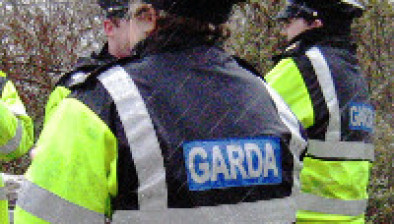Lorcan Staines SC to review bail laws in response to Shane O’Farrell killing

Lorcan Staines SC
Lorcan Staines SC has been appointed to lead a review of bail laws as part of the government’s response to the killing of law graduate Shane O’Farrell in 2011.
Mr O’Farrell, who completed his LLB at University College Dublin and his LLM at Trinity College Dublin, was struck and killed by a motorist who his family say should have been in jail for multiple breaches of bail conditions.
The motorist was later acquitted of dangerous driving causing death by direction of the trial judge. It was not open to the jury to convict him of a lesser charge, which the government says it will now change.
The O’Farrell family have campaigned for years for a public inquiry into the 23-year-old’s death and the events which followed.
In the Dáil yesterday, members of the O’Farrell family were present as the justice minister, Jim O’Callaghan, apologised “for the fact that the criminal justice system did not protect him as it should have”.
He said he did not believe there was a need for a years-long public inquiry when the failings were clear and he was prepared to apologise and take action on the basis of the established facts.
Zigimantas Gridziuska, the motorist who struck Mr O’Farrell while he was cycling near his home, had been in frequent legal trouble in the State from 2008 onwards.
Between 27 January 2010 and the fatal incident on 2 August 2011, he was convicted of 30 offences which had been committed while he was on bail, and he was on bail for at least six offences at the time of the collision.
He appeared before Judge John O’Hagan at Monaghan Circuit Criminal Court on 11 January 2011 and was warned that he would be imprisoned if he came back before the courts during a year-long adjournment.
Despite the Circuit Court judge directing that any further cases involving Gridziuska should be brought before him, he was never brought back in front of Judge John O’Hagan even though he was later charged and convicted with numerous offences.
“The O’Farrell family believe, and I agree with them, that had those convictions on 16 February, 23 February, 8 March, 9 May, 11 May, 8 June, 15 July and 25 July 2011 been brought to the attention of Judge O’Hagan, as he directed in his ruling of 11 January 2011, the likelihood is that Gridziuska would have had a custodial sentence imposed upon him on any of those dates,” Mr O’Callaghan said.
“Had this occurred, Gridziuska may not have been at large on that fateful day on 2 August 2011 when Shane was killed whilst on his bike.”
The government has committed to a review of bail laws and changes to road traffic legislation as a result of Mr O’Farrell’s death.
Mr O’Callaghan said: “The broader question that needs to be answered is how our criminal justice system should respond to a recidivist offender who persistently breaks summary laws and whether, even if the theft offences had been brought back to the attention of Judge O’Hagan, the judge would have had the jurisdiction through statutory power to remand Gridziuska in custody.
“In order to answer that policy question, I have asked senior counsel Lorcan Staines to assess our bail laws and make any recommendations he believes are appropriate taking into account the requirements of constitutional justice and the impossibility of refusing bail to every person accused of summary offences.
“I have required that this report be finalised and presented to me within four months of his engagement. I have asked that he identify any necessary changes that need to be made to our laws in relation to bail and/or suspended sentences.”
He added: “This is not a report that needs to establish facts since those facts are very readily apparent from the charges laid against Gridziuska in the year leading up to the death of Shane O’Farrell.
“It will not result in people having to invoke their In Re Haughey rights and lawyering up in a process that would inevitably take years.
“More importantly, it will not need to establish any facts since the relevant facts are already known.”
The minister also said that the government will seek to amend section 53(4) of the Road Traffic Act 1961 to allow a jury to convict a defendant of careless driving in circumstances where the trial judge has directed an acquittal on the more serious charge of dangerous driving.
“The option of the lesser offence is available with a jury acquittal of dangerous driving and it is a serious flaw in our law that the option is not available in the event of an acquittal direction from the judge,” he said.
The Department of Justice will also fund an annual scholarship in the name of Shane O’Farrell which will be awarded to a student who distinguishes themselves in the LLM degree at University College Dublin.
Mr O’Callaghan concluded: “It is my sincere hope that what I have said today on behalf of the Department of Justice and on behalf of the government of Ireland will provide some peace to the O’Farrell family.
“I hope that the review of our bail laws and the actions to be taken thereafter will help prevent other families having to suffer in the way the O’Farrell family have suffered.
“And I hope the O’Farrell family can take pride and comfort in the fact that Shane’s memory will live on through the scholarship at UCD.”









